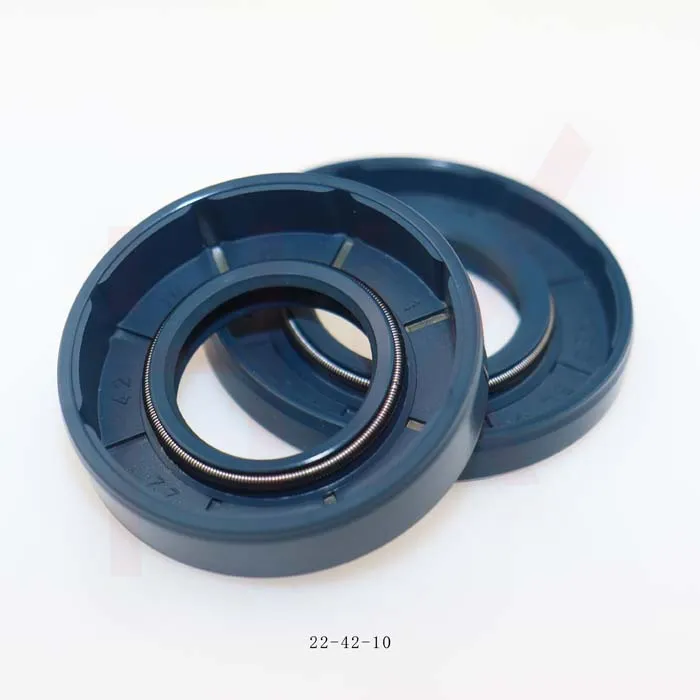Dec . 01, 2024 03:02 Back to list
hub oil seals axle seals
Understanding Hub Oil Seals and Axle Seals Their Importance and Applications
In the world of automotive engineering and maintenance, two components that often go unnoticed but play crucial roles in vehicle performance and longevity are hub oil seals and axle seals. Both of these seals are essential for sealing the connection points in a vehicle's drivetrain, helping to keep lubricants in and contaminants out. This article explores the functions, types, and importance of these seals, ensuring that vehicle owners understand their value.
What are Hub Oil Seals?
Hub oil seals, also known as wheel seals, are designed to prevent the loss of lubricating oil from the wheel hub assembly while also keeping dirt, dust, and moisture from entering the hub. They are typically made from durable materials like rubber or polyurethane to withstand various environmental conditions and resist wear over time. Hub oil seals are commonly found in vehicles with separate wheel bearings, serving as a critical barrier that maintains the lubrication required for smooth rotation.
The Role of Axle Seals
Axle seals, on the other hand, serve a similar yet distinct purpose. These seals prevent oil from leaking out of the axle housing, protecting the differential assembly and ensuring that the axle shafts remain adequately lubricated. Like hub seals, axle seals are designed to create a barrier against external contaminants, which can cause significant damage if allowed to enter the lubrication system.
Why are Seals Important?
The importance of hub oil seals and axle seals cannot be understated
. Here are a few reasons why1. Preventing Lubrication Loss Both hub and axle seals are critical for maintaining the proper level of lubrication in their respective components. Loss of oil can lead to increased friction, overheating, and ultimately, component failure.
2. Minimizing Contamination These seals act as protective barriers against dirt, debris, and moisture. Contaminants can cause erosion and wear in bearings and other moving parts, leading to breakdowns and costly repairs.
hub oil seals axle seals

3. Enhancing Vehicle Performance Proper sealing contributes to the overall efficiency of the drivetrain. When seals function correctly, vehicle components operate smoothly, providing better handling and performance.
4. Reducing Maintenance Costs By preventing leaks and contamination, effective seals can reduce the frequency of maintenance and repair needs, saving vehicle owners significant costs over time.
Types of Hub and Axle Seals
While the fundamental purpose of hub and axle seals remains the same, various types are available to suit different vehicles and applications. Common types include single-lip and double-lip seals, with double-lip seals offering more protection against contamination. Some seals come with springs that maintain pressure against the shaft, enhancing sealing effectiveness.
Installation and Maintenance Considerations
Proper installation of hub oil seals and axle seals is essential for ensuring their effectiveness. If improperly installed, seals may fail prematurely, leading to leaks and contamination. Vehicle owners should always refer to manufacturer specifications and guidelines during installation.
Regular inspection of seals can help identify any wear or damage before they lead to severe issues. Signs of a failing seal can include visible oil leaks, unusual noises from the drivetrain, or reduced performance.
Conclusion
In conclusion, hub oil seals and axle seals are vital components that help maintain the functionality and efficiency of a vehicle's drivetrain. Their primary roles in preventing lubrication loss and minimizing contamination are crucial for ensuring performance and longevity. Vehicle owners should prioritize the maintenance of these seals to avoid costly repairs and to keep their vehicles running smoothly for years to come. Investing time and resources in understanding these components will ultimately pay off in the form of enhanced vehicle reliability and performance.
-
Unlocking the Potential of Hydraulic Systems with Essential Sealing Solutions
NewsAug.06,2025
-
Unleash the Power of Your Hydraulic Systems with Our Premium Seal Kits
NewsAug.06,2025
-
Specialized Hydraulic Seal Kits for Breakers, Pistons, and Presses
NewsAug.06,2025
-
Revitalize Hydraulic Systems with Premium Repair and Seal Kits
NewsAug.06,2025
-
Fortify Your Cylinders with Premium Sealing Solutions
NewsAug.06,2025
-
Elevate Hydraulic System Reliability with Specialized Seal Kits
NewsAug.06,2025
-
TCN Oil Seal Metal Ring Reinforcement for Heavy Machinery
NewsJul.25,2025
Products categories
















